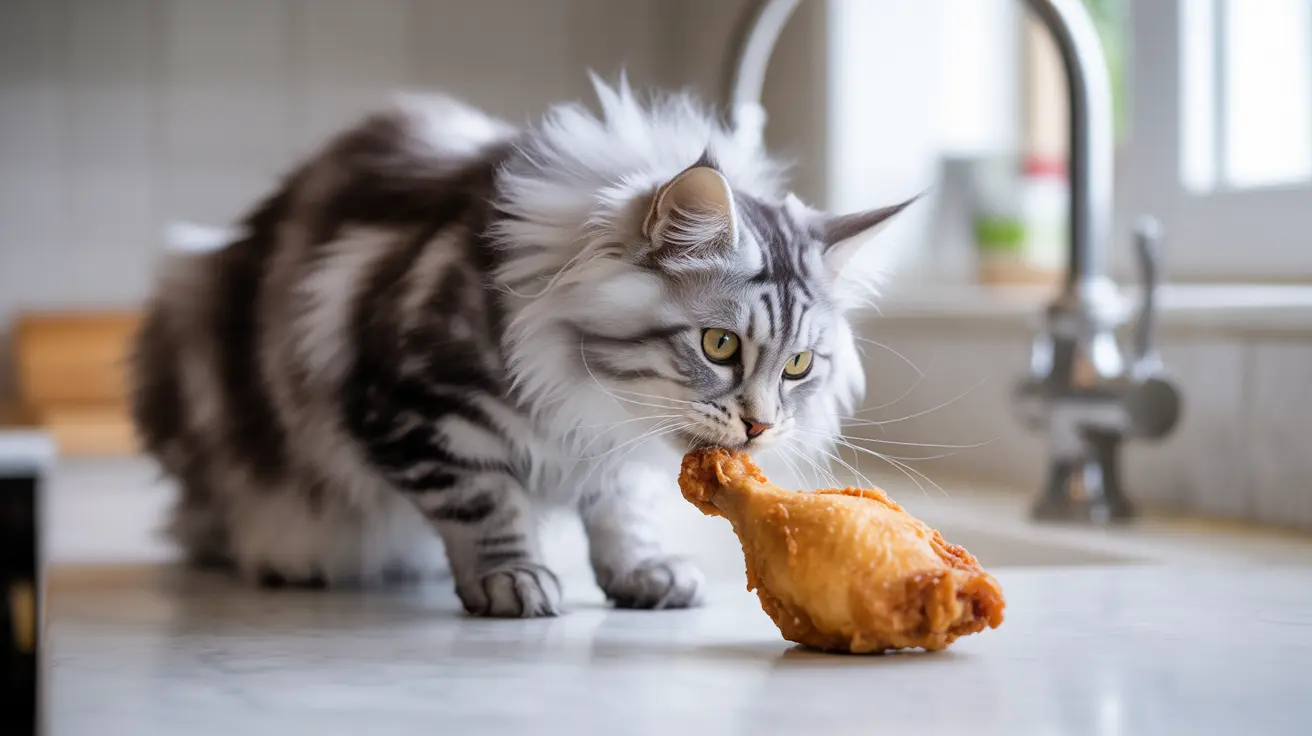While cats may be drawn to the enticing aroma of fried chicken, this popular human food can pose significant health risks to our feline friends. As obligate carnivores, cats naturally crave meat, but the preparation method and additives in fried chicken make it a potentially dangerous treat for your pet.
In this comprehensive guide, we'll explore why fried chicken isn't recommended for cats, what risks it poses, and what safer alternatives you can offer your feline companion instead.
The Dangers of Fried Chicken for Cats
High Fat Content and Its Impact
Fried chicken contains excessive amounts of fat that can overwhelm a cat's digestive system. A single fried chicken breast contains approximately 25 grams of fat - far more than what's healthy for a cat's daily intake. This high fat content can lead to:
- Pancreatitis
- Obesity
- Diabetes
- Joint problems
- Digestive upset
Harmful Seasonings and Additives
Commercial fried chicken typically contains numerous seasonings and additives that are toxic to cats, including:
- Onion powder
- Garlic powder
- Salt (up to 1,334 mg per serving)
- Cayenne pepper
- Various preservatives and flavor enhancers
Bone Hazards and Physical Risks
Cooked chicken bones present a serious danger to cats. When fried, these bones become brittle and can splinter easily, potentially causing:
- Choking hazards
- Mouth injuries
- Intestinal blockages
- Gastrointestinal perforations
Safe Alternatives to Fried Chicken
If you want to treat your cat to chicken, consider these safer alternatives:
- Plain boiled chicken (no seasonings)
- Baked chicken without oil or spices
- Small portions of skinless, boneless chicken
- Commercial cat treats formulated specifically for felines
Monitoring and Prevention
If your cat accidentally consumes fried chicken, watch for these warning signs:
- Vomiting or diarrhea
- Lethargy
- Loss of appetite
- Abdominal pain
- Unusual behavior
Frequently Asked Questions
Is it safe for cats to eat fried chicken with skin and bones?
No, it's not safe. The skin contains excessive fat and potentially harmful seasonings, while bones can splinter and cause serious internal injuries.
What health risks can fried chicken pose to my cat?
Fried chicken can cause pancreatitis, obesity, salt toxicity, and digestive issues. The seasonings commonly used in fried chicken can also be toxic to cats.
Can a small piece of plain, boneless fried chicken harm my cat?
While a tiny piece of plain, boneless fried chicken is unlikely to cause immediate harm, it's still not recommended due to its high fat content and potential hidden seasonings.
How does seasoning in fried chicken affect my cat's health?
Common seasonings like onion and garlic powder can cause anemia in cats, while salt can lead to dehydration or toxicity. Spices can irritate their digestive system.
What is the best way to feed chicken safely to cats as a treat?
The safest way is to offer small amounts of plain, boiled, or baked chicken without any seasonings, skin, or bones. Always consult with your veterinarian first.
Conclusion
While cats might be attracted to fried chicken, it's best to avoid feeding it to them altogether. The risks of obesity, pancreatitis, and other health complications far outweigh any momentary pleasure your cat might get from this treat. Instead, stick to veterinarian-approved treats or plain, cooked chicken without any additives for the safest approach to treating your feline friend.






